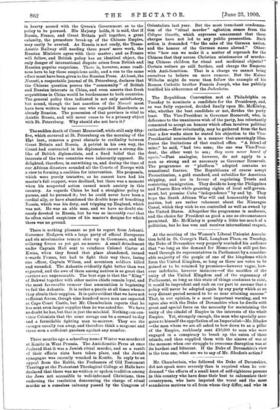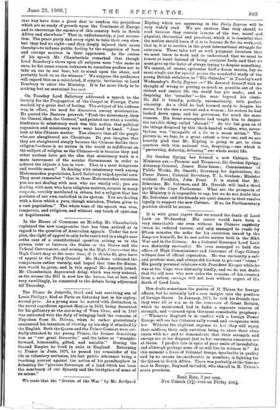Mr. Chamberlain, who followed the Duke of Devonshire, did not
speak more severely than is required when he con- demned " the efforts of a small knot of self-righteous persons in this country who have done their best to calumniate their countrymen, who have imputed the worst and the most scandalous motives to all from whom they differ, and who in
that way have done a great deal to confirm the prejudices which are so ready of growth upon the Continent of Europe and to encourage the enemies of this country both in South Africa and elsewhere." That is, unfortunately, a just accusa- tion. The peace party had every right to take their own view, but they had no right—and they deeply injured their cause thereby—to inflame public feeling by the suggestion of base and corrupt motives in their opponents. In the course of his speech Mr. Chamberlain remarked that though Lord Rosebery's views upon all subjects were "the same as ours, he for some reason unknown to ourselves prefers not to take an oar in our boat, but to stand upon the shore, and probably back us as the winners." We suppose the quidnuncs will regard this as a calculated, if cryptic, invitation to Lord Rosebery to enter the Ministry. It is far more likely to be nothing but an oratorical bon mot.



































 Previous page
Previous page